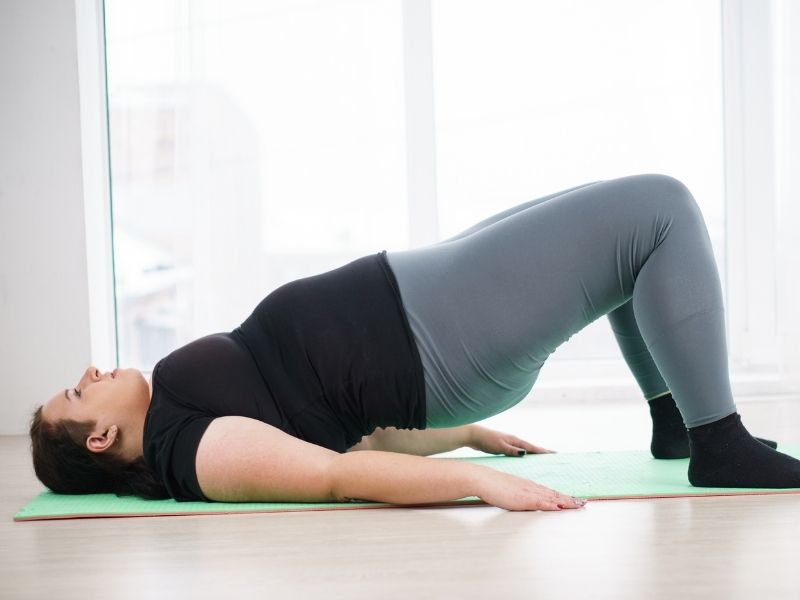Exercise Physiology Services
Up & Active Accredited Exercise Physiologists are university educated allied health exercise professionals who assess, design and plan exercise programs tailored to the individual.
Our team have the knowledge and skills to work with acute, sub-acute and chronic medical conditions, injuries and disabilities. Our scope of practice is broad, we work with:
- Individuals with musculoskeletal pain such as back and knee pain
- Athlete development
- Post-surgical rehabilitation
- Chronic diseases management including cardiovascular, neurological and pulmonary conditions
- General deconditioning
- Osteoporosis
- Balance and falls deficits
- Post-natal fitness
PHYSIOTHERAPY
PELVIC HEALTH PHYSIOTHERAPY
EXERCISE PHYSIOLOGY
CORPORATE ASSESSMENTS
Types of Exercise Physiology

Clinical Pilates
Our Exercise Physiologists use clinical pilates as part of their rehabilitation plans for a variety of people including those experiencing chronic pain, decreased mobility, low strength or muscle tone. Clinical Pilates is also beneficial for complementing global strength in athletic populations to assist with injury management and prevention. Clinical Pilates involves the use of our Reformer (Toowoomba and Highfields), Trapeze Table (Toowoomba only) or mat work, using low resistance with high repetitions to both lengthen and strengthen the body.
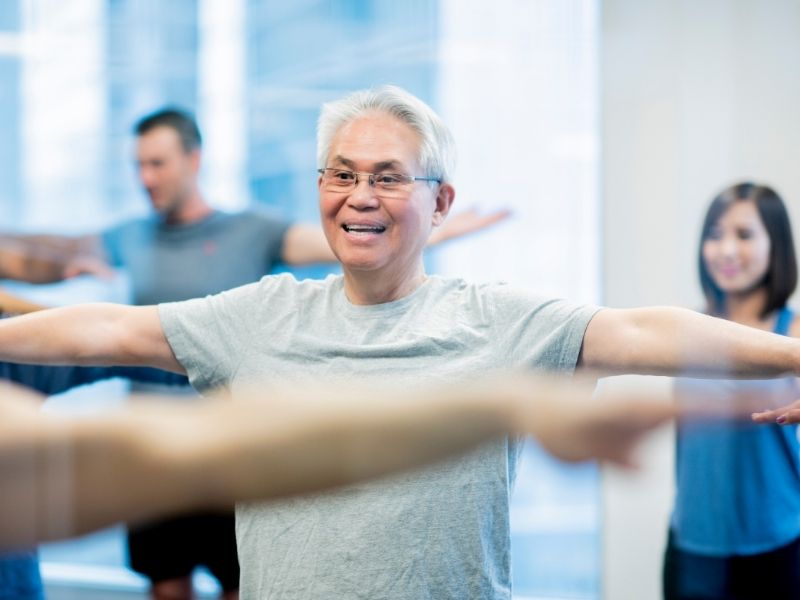
Classes
We offer small group training for those who are gaining independence but still require some supervision and exercise modification. Our classes include Core, Bones & Balance, Hydrotherapy and Mat Pilates. To join a class you can be referred by your current physiotherapist or exercise physiologist or we will require you to book an exercise physiology initial assessment. Classes are booked through reception and can be completed casually or at a discounted rate if group packs are purchased.

Performance Rehab Program
If you are an athlete wanting to return to sport following an injury, then our Performance Rehab Program is for you. The Performance Rehab program is a 1-hour session run Monday, Wednesday and Friday at 6am. You can expect an individualised, supervised program focused not only on rehabilitation for your injury but also bridging the gap between rehab and improving performance in your chosen sport. The Performance Rehab program will progress you though your rehab and elevate your performance and recovery well above regular gym attendance. To join the program, please first book an initial assessment with Paul.
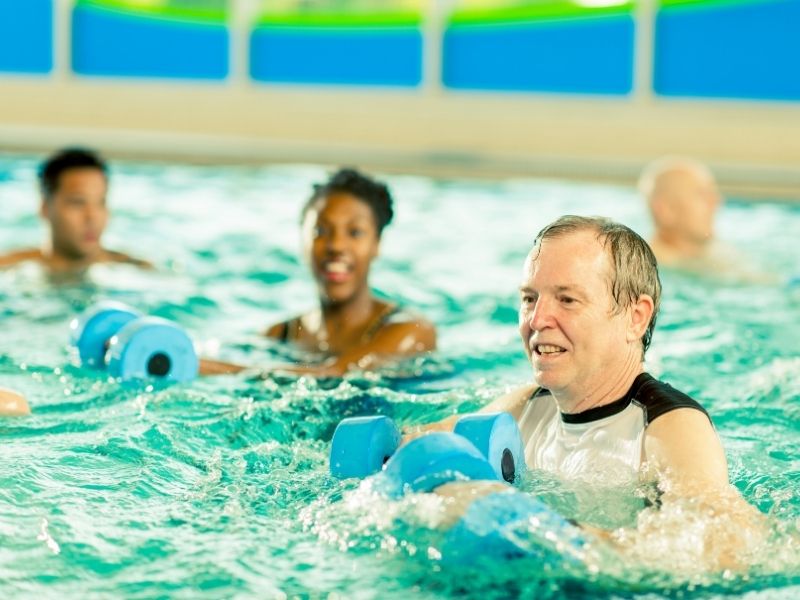
Hydrotherapy
Hydrotherapy is physio or exercise physiologist directed exercise in a warm water pool which takes advantage of the benefits of water – buoyancy, hydrostatic pressure, temperature, turbulence and resistance. Both acute and chronic conditions can benefit from hydrotherapy including osteoarthritis, post-operative rehabilitation, back pain and progressive neurological conditions such as multiple sclerosis, Parkinson’s Disease and cerebral palsy.
You can attend our hydrotherapy as an independent session or in a group setting after attending an initial consultation in-rooms.
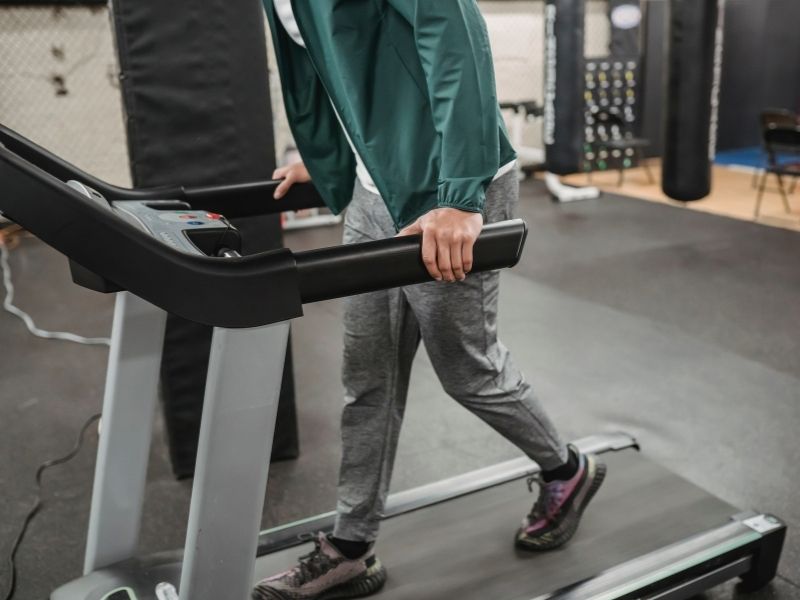
Cardiac Rehabilitation
Up and Active Cardiac rehabilitation involves education and exercise to support individuals who are recovering after a cardiac event, procedure or diagnosis of a heart condition. Our Exercise Physiologists will work closely with your Cardiologist, GP, Pharmacist and other members of your care team to ensure we achieve the best outcomes possible. Exercise is recommended for you if you have coronary heart disease, heart attack (myocardial infarction), angina, cardiac arrest, a device insertion such as a pacemaker, stroke or mini-stroke (TIA).

Musculoskeletal Rehabilitation
Musculoskeletal Rehabilitation involves using exercise to help treat, manage and prevent injuries or health conditions that effect the musculoskeletal system such the bones, joints, muscles or tendons. Our Exercise Physiologists are experienced in prescribing appropriate, individualised, evidence-based exercises to help treat and manage a range of musculoskeletal concerns such as osteoarthritis, osteoporosis, rheumatoid arthritis, persistent pain, low back pain, pre- and post-operative rehabilitation (e.g. joint replacements, rotator cuff repairs) and workplace injuries.
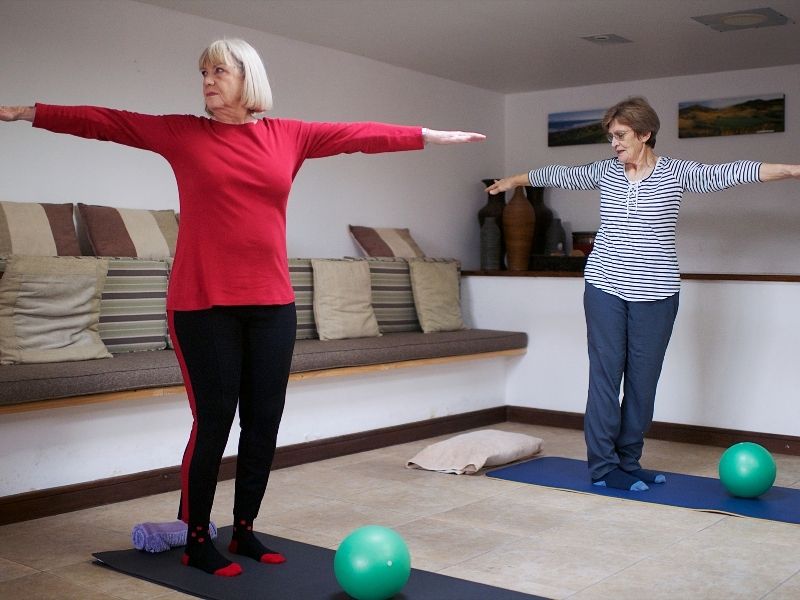
Women’s Health
Our Exercise Physiologists understand the unique physiological changes that women experience during different stages of life. We are passionate about helping women to overcome some of the barriers that can prevent them from keeping active and have knowledge about different conditions such as Endometriosis, PCOS, Low back pain, Menopause, Pelvic Organ Prolapse, Anxiety and Depression.
We often co-treat along-side our Pelvic Health Physiotherapists to provide gold standard care to our Women’s Health clientele.
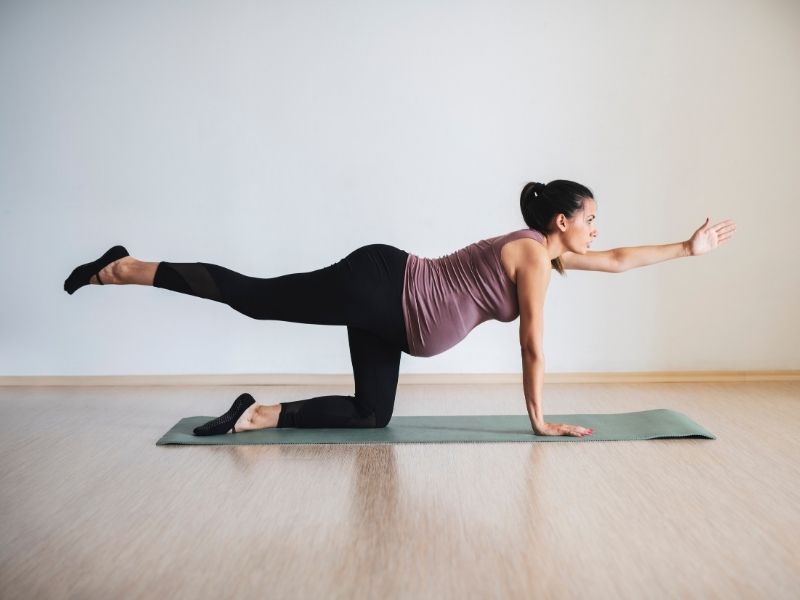
Pre and Post Natal Exercise
During pregnancy, women experience many physiological changes including cardiovascular (increased heart rate and blood flow resistance), body weight, hormonal, musculoskeletal and changes to their centre of gravity which effects balance. Our Exercise prescribe safe exercise for women through all stages of pregnancy including pre-conception, during gestation and post-partum phases. Exercise through these phases can support hormone regulation, weight management, musculoskeletal pain, pelvic floor dysfunction and urinary incontinence, gestational diabetes mellitus, gestational hypertension and mental health.
We often co-treat along-side our Pelvic Health Physiotherapists to provide gold standard care to our Women’s Health clientele.

Chronic Disease Management
Chronic disease is any health condition that is likely to last more than 1 year or require ongoing management throughout the lifespan. Appropriate exercise is one of the best forms of therapy to prevent and manage chronic health conditions to improve long-term health outcomes. Exercise Physiologists, understand unique physiological changes of chronic disease and are the most qualified professionals to deliver exercise management. Common chronic diseases that we see here at Up and Active include Hypertension, High Cholesterol, Diabetes Mellitus, Asthma, Chronic Obstructive Pulmonary Disease (COPD) and Cancer.
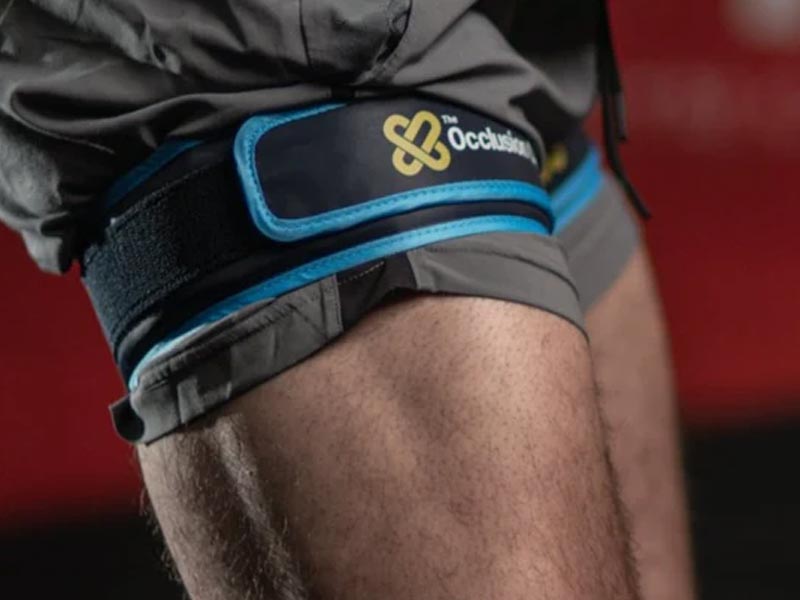
Blood Flow Occlusion training
Blood flow occlusion training involves restricting blood flow to the muscles being trained using a specialised blood flow restriction cuffs. This creates a hypoxic (low-oxygen) environment that can increase the release of growth hormone and other anabolic factors. Blood flow occlusion training can be beneficial to build muscle mass, regain strength and target specific rehabilitation, however should be used with caution. Have a chat with your allied health professional to see if this training is right for you.
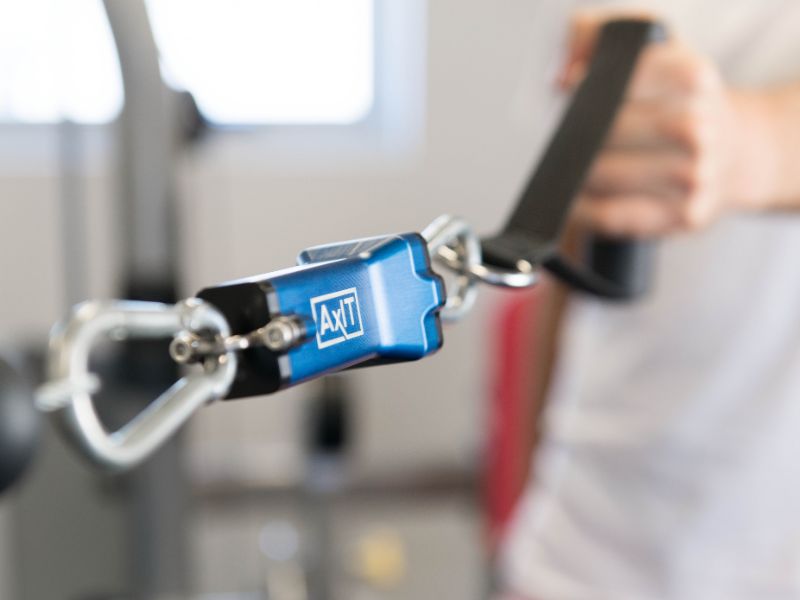
AXIT System
The AxIT system is a combination of hand-held dynamometers and force plates used to determine your tissue capacity and performance. Force plate testing can benefit athletes, the general population and rehabilitation clients. Using the AxIT system we can identify muscle imbalances, assess injury risk, assist in the development of targeted rehab programs, and monitor progress. Force plate testing can provide important information about an individual’s physical abilities and help develop more effective training and rehab programs.
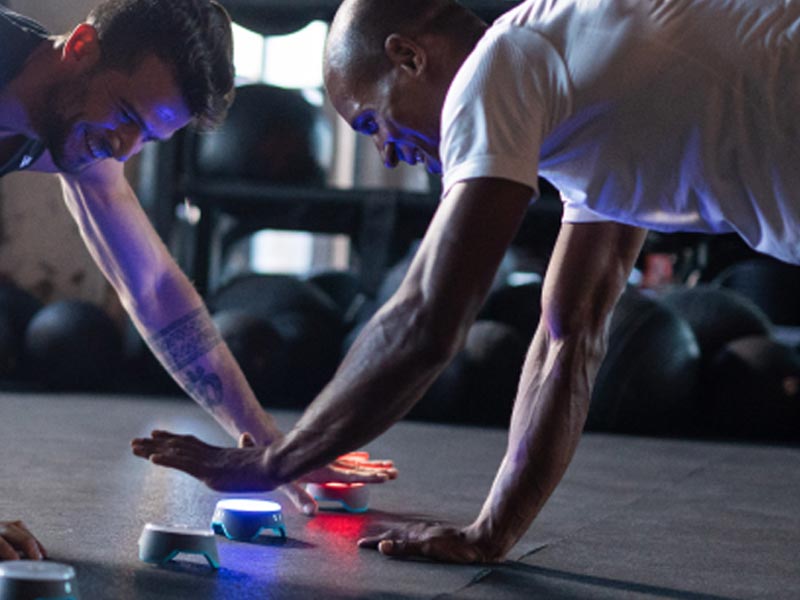
Blaze Pods
Blaze Pods are a training tool that uses wireless LED pods to improve reaction time, balance, coordination and agility to improve physical function, injury prevention and enhance recovery. Blaze pods are versatile and customisable addition to any rehabilitation program, allowing for targeted, effective training improving individual outcomes.
What can I expect from my exercise physiology session?
An exercise physiologist is a healthcare professional who gives people information and advice about exercise to help them manage and prevent injuries and chronic conditions. They put together individual exercise programs that are safe effective and appropriate for the person.
Exercise physiologists provide rehabilitation services and work with people who have or are recovering from a range of conditons including athlete program developmemt, patients with cardiovascular disease, diabetes, chronic pain, depression and cancer.
We are first contact practitioners so you do not need a referral to see our team privately. Health Insurance claiming is available in the clinic via HICAPS. We also service EPC care plan patients, Workcover, CTP, NDIS and DVA clients with the appropriate GP referrals. We work closely with local GPs, surgeons, medical specialists, pain specialists and other allied health providers. We are integrated in the community through our networks with schools, sporting clubs, coaches and leisure centres.
Exercise physiology is delivered in a variety of ways including 1 on 1 sessions, 1 on 2 sessions, small group classes or hydrotherapy, but always starts with a initial assessment to understand your specific needs, set goals and discuss expectations.
Initial Consultation
Your exercise physiologist will spend time understanding your health, presentation, background and individuality. In consultation with you they will make an individualised plan, involving exercise, to help you achieve your goals. This session involves some testing. They will assess your baseline fitness which can be retested as your work through your treatment plan over time.
Follow-Up Consultations
During your follow up consultations you will work in the gym with your exercise physiologist performing supervised exercises. This helps to keep you on track, adherent to your exercise’s, ensures you are performing the exercises as intended and reduces your injury risk. As you work through your plan your exercise physiologist will progress exercises, adapt them to your needs and reassess your baseline measurements.
As clients become less reliant on the individualised one-on-one supervision you may be invited to attend a joint session with another client or be welcomed into a class. Please speak to your exercise physiologist about these options.
Exercises
VALD
Our Physiotherapists and Exercise Physiologists will usually prescribe you a home exercise program to compliment your physical in-rooms sessions. This is an integral component of your rehab and recovery. To make life easier we use the program Physitrack, with photos and videos of real models, to set clear expectations and easy to understand instructions. You can access your exercises via email, printed exercise sheets or Physiapp (phone application) for the videos.

